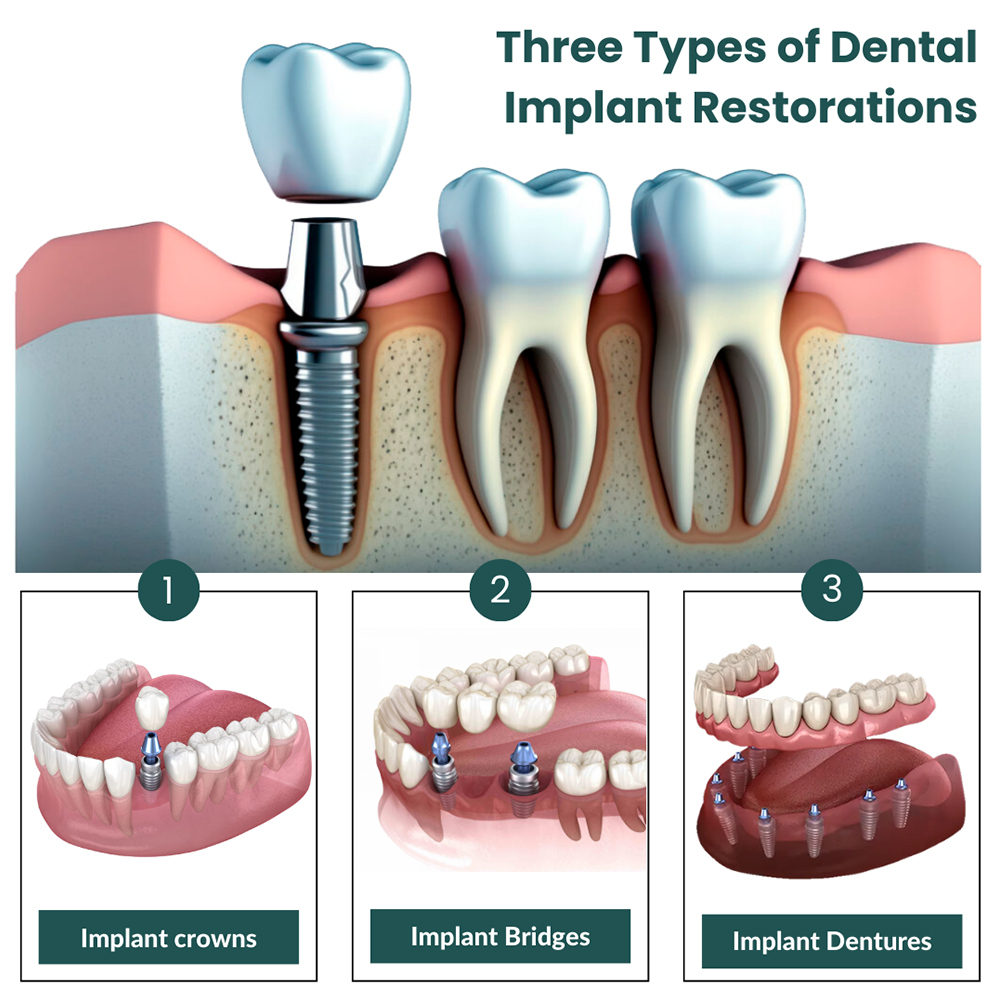Everything about Dental Sense
Everything about Dental Sense
Blog Article
Our Dental Sense Statements
Table of Contents4 Simple Techniques For Dental SenseSome Ideas on Dental Sense You Need To KnowUnknown Facts About Dental SenseSome Known Factual Statements About Dental Sense
are clinical gadgets surgically implanted right into the jaw to restore a person's ability to eat or their appearance. They give support for man-made (phony) teeth, such as crowns, bridges, or dentures. When a tooth is lost due to injury or disease, an individual can experience issues such as fast bone loss, faulty speech, or changes to eating patterns that result in discomfort.Dental dental implant systems include an oral implant body and dental implant joint and may likewise include a joint fixation screw. Front tooth filling. The dental implant body is operatively placed in the jawbone instead of the tooth's origin. The oral implant abutment is usually connected to the implant body by the abutment fixation screw and extends with periodontals right into the mouth to sustain the connected fabricated teeth
(https://www.pubpub.org/user/matthew-music)Framework of The Dental Implant System picking dental implants, speak with your dental provider concerning the potential benefits and threats, and whether you are a prospect for the procedure. Points to consider: Your general health is an essential consider figuring out whether you are a great candidate for dental implants, just how long it will require to recover, and just how long the dental implant might remain in location.
Smoking may influence the recovery procedure and reduce the long-lasting success of the implant. The recovery procedure for the implant body may take a number of months or longer, during which time you generally have a short-term abutment in place of the tooth. the oral implant procedure: Very carefully follow the oral health directions offered to you by your dental company.
The Best Strategy To Use For Dental Sense
Implant failure can cause the requirement for an additional surgery to take care of or change the implant system. Brings back the ability to eat Recovers aesthetic look Helps keep the jawbone from diminishing due to bone loss Maintains the health of the surrounding bone and periodontals Helps keep nearby (nearby) teeth stable Improves lifestyle Damage to bordering natural teeth during dental implant placement Injury to the surrounding tissues during surgical procedure, such as sinus opening Injury during surgical treatment (for instance, fracture of bordering jawbone) Poor function, such as seeming like the teeth do not bite with each other usually A sensation that the tooth hangs or turning in place resulting from an abutment screw loosening Implant body failure (looseness of the dental implant body) because of systemic infection, which may be more probable in patients with unchecked diabetes mellitus because of local infection in bone and gum tissues supporting the dental implant body due to delayed recovery, which may be more probable in individuals that smoke Trouble cleaning the gum tissues around the dental implant, causing bad dental health Unattended periodontal condition Post-surgical feeling numb as a result of nerve impingement or damages Always inform healthcare companies and imaging technicians that you have dental implants prior to any kind of magnetic resonance imaging (MRI) or x-ray procedures.
FDA is not conscious of any adverse events reported for MRI or x-ray treatments with dental implants. Dental implants systems are normally made from materials that follow global agreement criteria of the International Company for Standardization (ISO) or ASTM International. These requirements have information of what makes a risk-free product.

An oral implant is a framework that changes a missing out on tooth. With screw-like gadgets, the specialist inserts a dental implant right into the jawbone, and it serves as a support for a man-made tooth, called a crown. A device called a joint attaches the fabricated tooth to the oral implant. The crown is customized to fit the person's mouth and match the color of their teeth.
Rumored Buzz on Dental Sense
Some people are not qualified for oral implant surgery. It is for dental specialists to run on individuals with: severe illnessuncontrollable metabolic diseasebone or soft tissue disease or infectionIf these issues are dealt with, a person can have the surgery. In, oral cosmetic surgeons avoid running on people with: If individuals with any one of the above undergo oral implant surgical treatment, there is a higher risk of the implant falling short.

Oral dental implant surgery is a customized procedure. Offer you time to heal. Attach the message and final crown, bridge or denture.
Next off, your cosmetic surgeon will carefully put the dental implant into your jaw. Your specialist will rearrange your gum tissues and shut the incision with stitches. If your implant is near the front of your mouth, your dental professional will make a temporary tooth for you to use till you heal. By doing this, you won't have a space in your smile while you recover.
What Does Dental Sense Mean?
Your provider can tell you what to anticipate in your scenario. During the recovery stage, your jawbone needs to fuse to the oral implant. This procedure, called osseointegration, is critical for security and lasting success. This procedure can take anywhere from 3 to 9 months. In some situations, it might take longer.
Once your dental implant heals, your dentist can affix the joint (little connector post) and your last repair (crown, bridge or denture). This generally takes regarding one hour to complete and may call for a second small surgical procedure. You should not feel any pain during your dental implant procedure because your copyright will utilize drug to numb your gum tissues.
Report this page